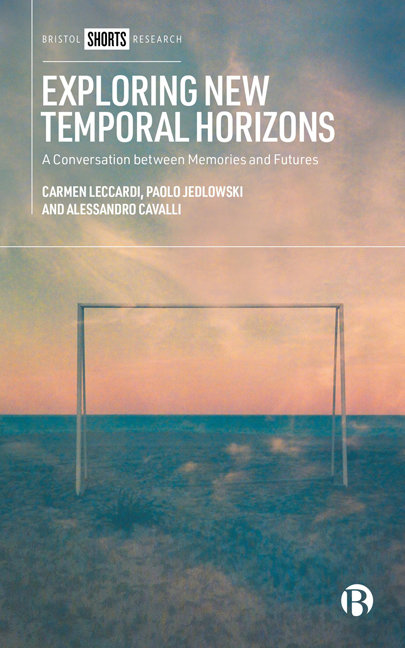Introduction
Published online by Cambridge University Press: 28 March 2024
Summary
The key idea behind this book can be summarized as follows: the study of temporal perspectives and the changes brought about by historical processes can help the social sciences recompose what other disciplines have gradually separated and fragmented, and oftentimes contrasted. In a global society full of conflicts that have only been partially analysed, we need a global approach. A temporal analysis can both sustain this approach and concretely express it. Using time as an analytic tool, the defence of life in the Anthropocene and the fight against unacceptable levels of economic and social inequality – not only between the Global North and South but also within individual societies – can become part of the same global justice project.
In this framework, we first need to identify the signals coming from free civil society and amplify its call for a radical change of direction. Depending on the possibilities available to us today, we must redefine our horizons with regard to both the climate crisis and the ‘reasonable utopias’ that promote respect for the moral ideal of equality. We can therefore affirm that while focusing on a redefinition of the concepts of memory and future in the first decades of the new century, and exploring how the very concept of generation has been transformed in this context, this book advances a distinctly political perspective.
The book’s title refers to the theme of temporal horizons (Husserl, 1964 [1928]), which, for many decades, have been affected by a process of contraction or shrinkage that has challenged some of the axioms of modernity (Di Chio, 2015). This choice was the result of a precise analytical itinerary. Given the effect of the ‘closure of time’ on the present, which damages its essential relationship with the past and the medium-to long-term future, this process impacts the very life of institutions and social groups, as well as the lives of single individuals. The forms and exercise of democracy, collective action, symbolic and communicative expressions, biographical constructions and identities, social reproduction and conflict, the relationships among generations, and even – and most importantly – the concept of action itself are profoundly changed by this deep transformation.
- Type
- Chapter
- Information
- Exploring New Temporal HorizonsA Conversation between Memories and Futures, pp. 1 - 7Publisher: Bristol University PressPrint publication year: 2023

